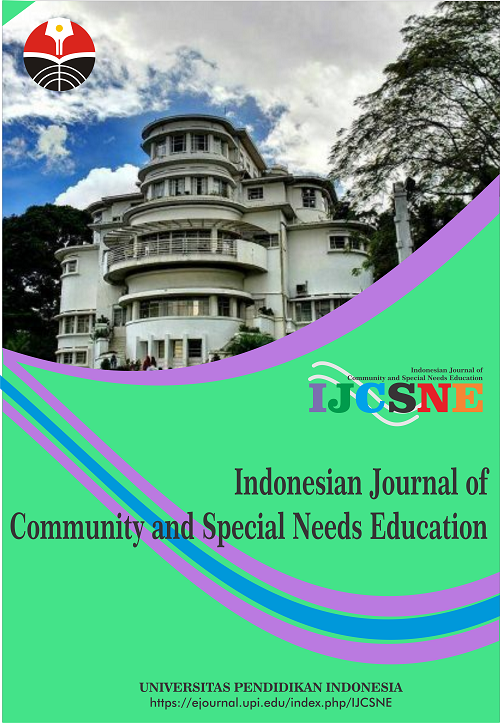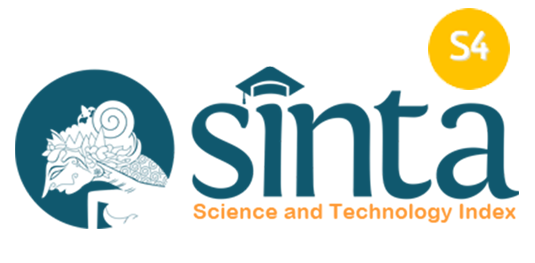Managing the Social Development of Students with Disabilities in Inclusive Universities: A Conceptual Approach
Abstract
Keywords
Full Text:
PDFReferences
Aithal, P. S., and Maiya, A. K. (2023). Innovations in higher education industry–Shaping the future. International Journal of Case Studies in Business, IT, and Education (IJCSBE), 7(4), 283-311.
Castelo-Branco, I., Oliveira, T., Simões-Coelho, P., Portugal, J., and Filipe, I. (2022). Measuring the fourth industrial revolution through the industry 4.0 lens: The relevance of resources, capabilities and the value chain. Computers in Industry, 138, 103639.
Conceição, P., Gibson, D. V., Heitor, M. V., and Sirilli, G. (2001). Knowledge for inclusive development: The challenge of globally integrated learning and implications for science and technology policy. Technological Forecasting and Social Change, 66(1), 1-29.
Day, C., Gu, Q., and Sammons, P. (2016). The impact of leadership on student outcomes: How successful school leaders use transformational and instructional strategies to make a difference. Educational Administration Quarterly, 52(2), 221-258.
Espada-Chavarria, R., Diaz-Vega, M., and González-Montesino, R. H. (2021). Open innovation for an inclusive labor market for university students with disabilities. Journal of Open Innovation: Technology, Market, and Complexity, 7(4), 217.
George, G., McGahan, A. M., and Prabhu, J. (2012). Innovation for inclusive growth: Towards a theoretical framework and a research agenda. Journal of management studies, 49(4), 661-683.
Gidley, J. M., Hampson, G. P., Wheeler, L., and Bereded-Samuel, E. (2010). From access to success: An integrated approach to quality higher education informed by social inclusion theory and practice. Higher Education Policy, 23, 123-147.
Hurenko, O., Suchikova, Y., Kravchenko, N., Nesterenko, M., and Petryk, K. (2024). Employment of young people with disabilities: The potential of social partnership of universities, municipalities and the labor market of Ukraine. Work, 79(3), 1407-1423.
Kenny, N., McCoy, S., and O’Higgins Norman, J. (2023). A whole education approach to inclusive education: An integrated model to guide planning, policy, and provision. Education Sciences, 13(9), 959.
Magrin, M. E., Marini, E., and Nicolotti, M. (2019). Employability of disabled graduates: Resources for a sustainable employment. Sustainability, 11(6), 1542.
Mogas, J., Palau, R., Fuentes, M., and Cebrián, G. (2022). Smart schools on the way: How school principals from Catalonia approach the future of education within the fourth industrial revolution. Learning Environments Research, 25(3), 875-893.
Pocol, C. B., Stanca, L., Dabija, D. C., Pop, I. D., and Mișcoiu, S. (2022). Knowledge co-creation and sustainable education in the labor market-driven university–business environment. Frontiers in Environmental Science, 10, 781075.
Poulsen, S. V., and Kvåle, G. (2018). Studying social media as semiotic technology: A social semiotic multimodal framework. Social Semiotics, 28(5), 700-717.
Rajakumar, C. S. C., Usman, S. A., Micheal, M. P. S. S., and Parayitam, S. (2024). Knowledge sharing and organizational commitment: Psychological capital as a mediator and self-actualization as moderator. Information, 15(8), 459.
Shakhatreh, H. J. M. (2024). The future work management in the education sector: Remote work and flexible work. International Journal of Intellectual Human Resource Management (IJIHRM), 5(01), 46-60.
Shaw, J., Brewer, L. C., and Veinot, T. (2021). Recommendations for health equity and virtual care arising from the COVID-19 pandemic: Narrative review. JMIR Formative Research, 5(4), e23233.
Suleman, Q., Syed, M. A., Mahmood, Z., and Hussain, I. (2020). Correlating emotional intelligence with job satisfaction: Evidence from a cross-sectional study among Secondary School Heads in Khyber Pakhtunkhwa, Pakistan. Frontiers in Psychology, 11, 240.
Thelma, C. C., and Chitondo, L. (2024). Leadership for sustainable development in Africa: A comprehensive perspective. International Journal of Research Publications, 5(2), 2395-2410.
Yu, Y., Appiah, D., Zulu, B., and Adu-Poku, K. A. (2024). Integrating rural development, education, and management: Challenges and strategies. Sustainability, 16(15), 6474.
Zamiri, M., and Esmaeili, A. (2024). Strategies, methods, and supports for developing skills within learning communities: A systematic review of the literature. Administrative Sciences, 14(9), 231.
DOI: https://doi.org/10.17509/ijcsne.v5i1.81307
Refbacks
- There are currently no refbacks.
Copyright (c) 2025 Universitas Pendidikan Indonesia

This work is licensed under a Creative Commons Attribution-ShareAlike 4.0 International License.















